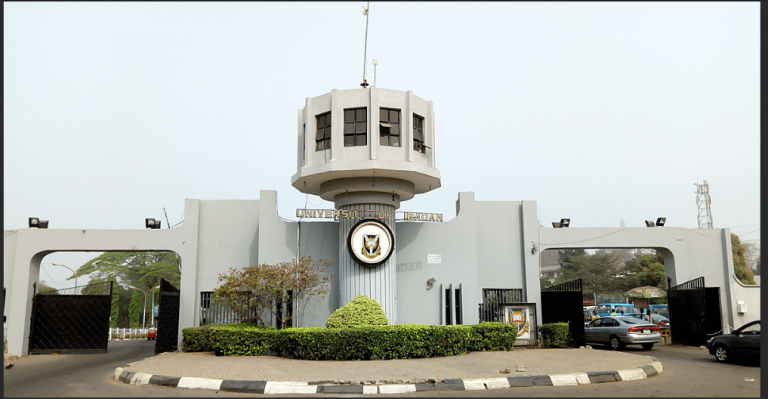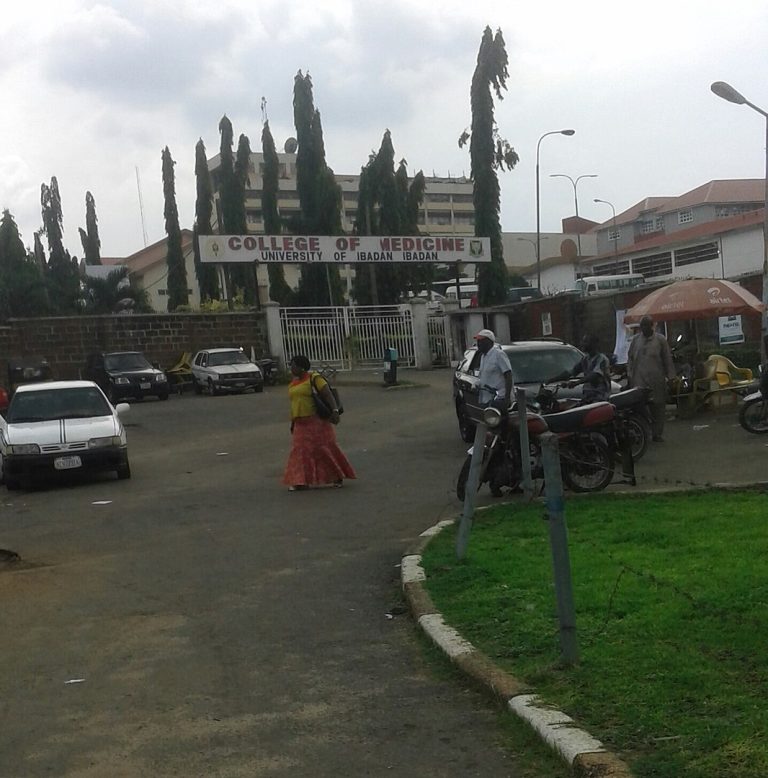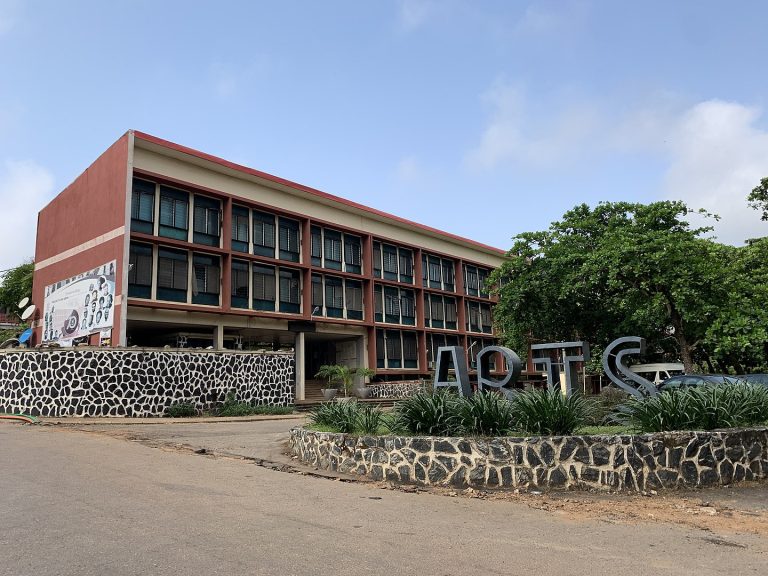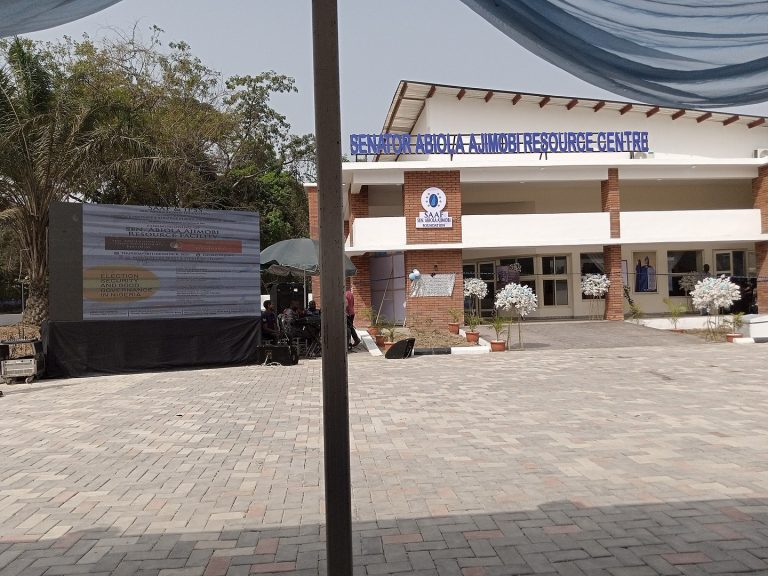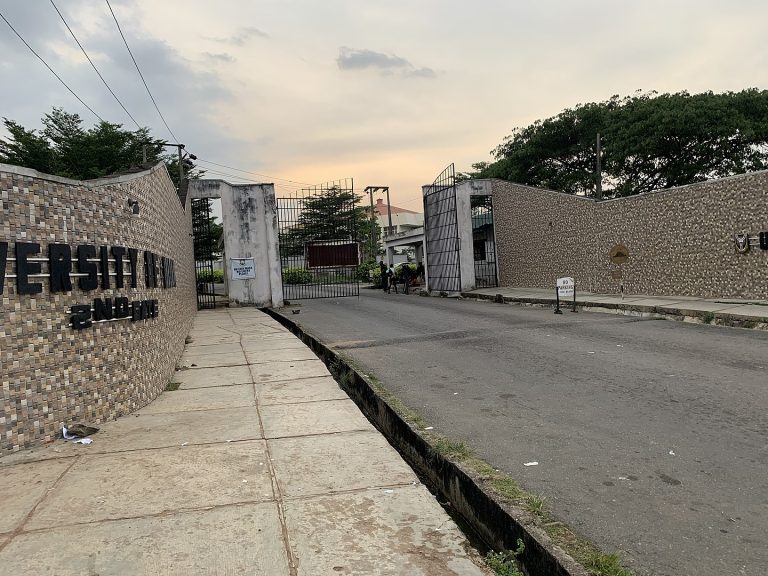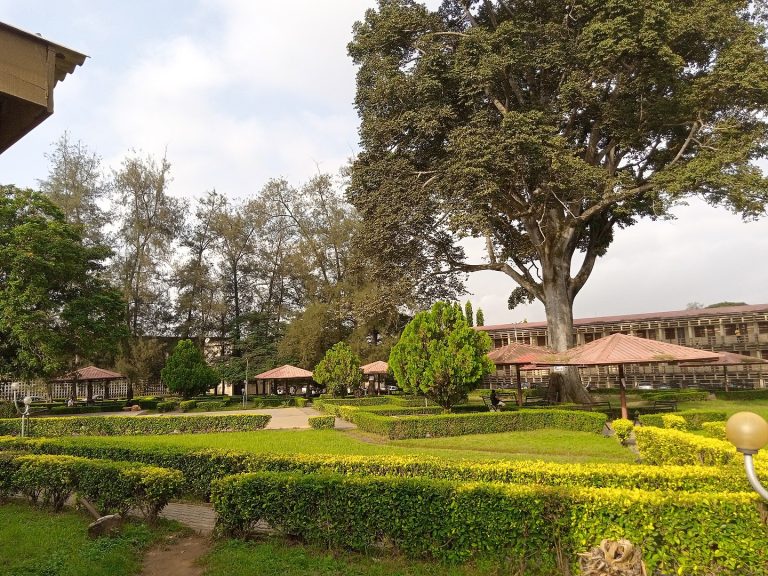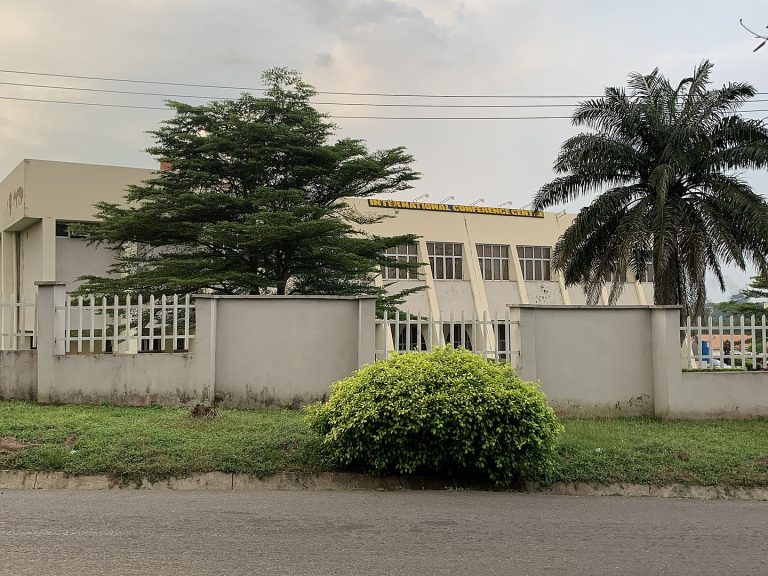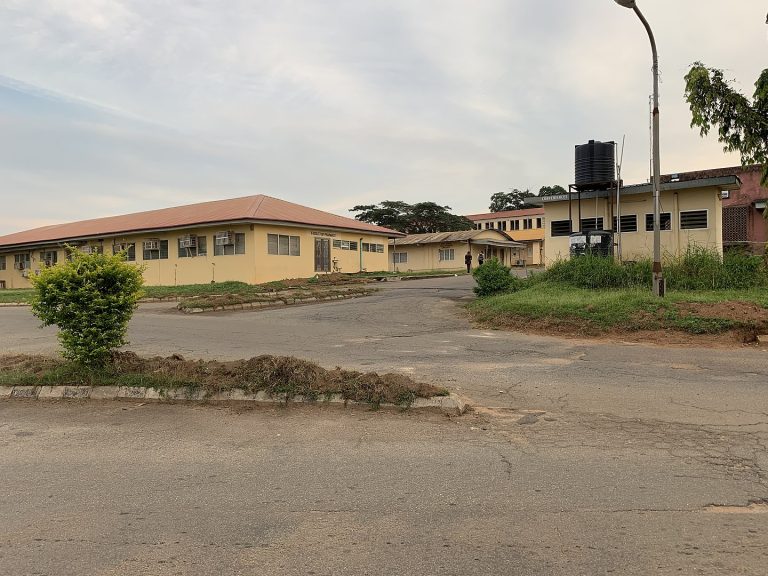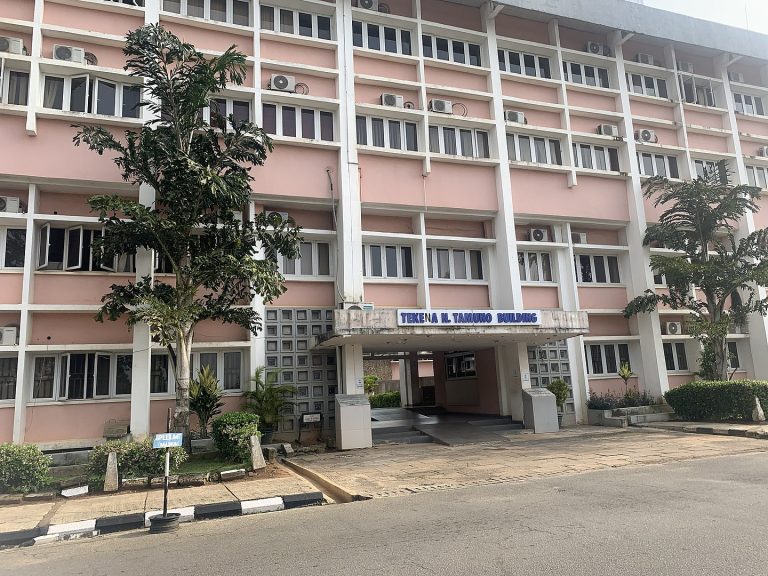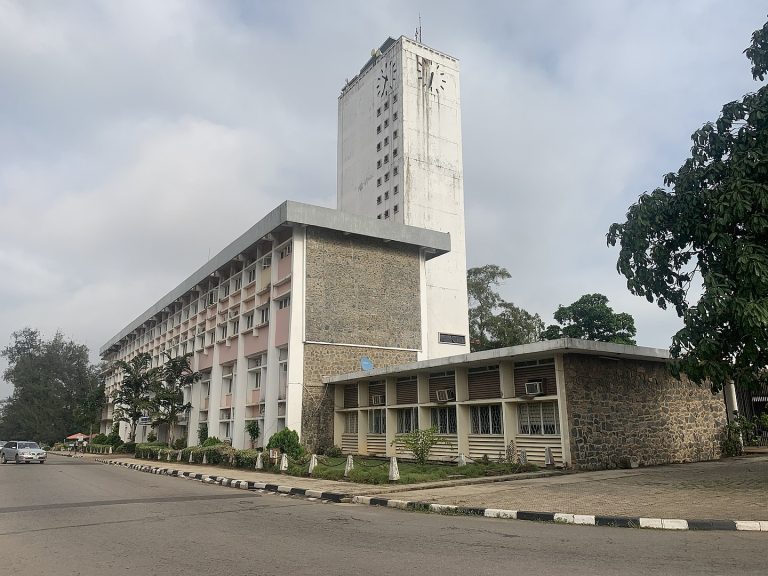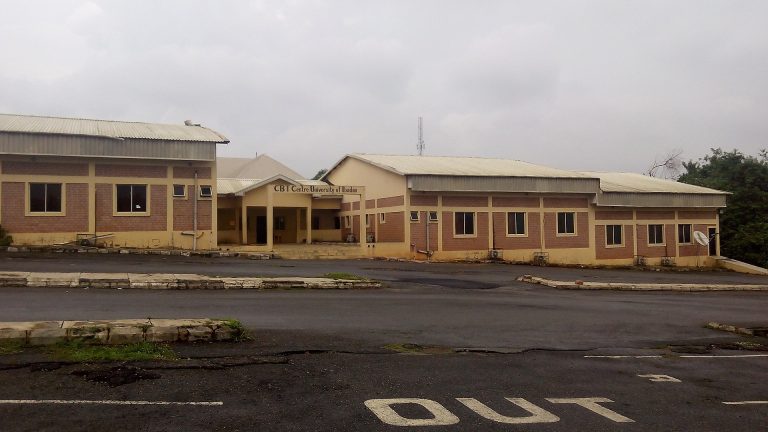The University of Ibadan (UI) is a public research university in Ibadan, Nigeria. The university was founded in 1948 as University College Ibadan, one of many colleges within the University of London. It became an independent university in 1962 and is the oldest degree-awarding institution in Nigeria. Through its graduate network, the University of Ibadan has contributed to the political, industrial, economic and cultural development of Nigeria. The history and influence of the University of Ibadan have made it one of the most prestigious universities in Africa.
The University of Ibadan is made up of 92 academic departments organized into 17 faculties, namely Arts, Science, Basic Medical Sciences, Clinical Sciences, Agriculture, the Social Sciences, Education, Veterinary Medicine, Pharmacy, Technology, Law, Public Health, Dentistry, Economics and Management Sciences, Renewable Natural Resources, Environmental Design and Management, and Multidisciplinary Studies. The Faculties of the Basic Medical Sciences, Clinical Sciences, Public Health and Dentistry are organized as a College of Medicine. The university has other academic units, among which are: Institute of Child Health, Institute of Education, Institute of African Studies, Centre for Child Adolescent and Mental Health, Centre for Entrepreneurship and Innovation (CEI), Institute for Advanced Medical Research and Training (IAMRAT), Institute of Cardiovascular Diseases, Centre for Drug Discovery, Development & Production (CDDDP) and Centre for Control & Prevention of Zoonosis (CCPZ). The recently established Infectious Diseases Institute (IDI), School of Business (UISB) and National Institute for Maternal, Child & Neonatal Health (NIMCNH) have commenced operation.
The University of Ibadan has 15 halls of residence that provide accommodation for about 30% of the population of students in the regular studies mode. Some of the popular halls in the university include Lord Tedder Hall, Kenneth Mellanby Hall, Sultan Bello Hall, Nnamdi Azikiwe Hall, Independence Hall, Tafawa Balewa Hall, Kuti Hall, Queen Idia Hall, Queen Elizabeth Hall and the Obafemi Awolowo Hall – which is the largest female hall in West Africa. The university has a total staff strength of 5,339, with 1,212 housing units for both senior and junior staff. The university has residential and sports facilities for staff and students on campus, as well as separate botanical and zoological gardens.
The university has educated many notable alumni, including a Nobel Laureate in Literature, eminent mathematicians, scientists, politicians, lawyers, business icons, philosophers, writers, monarchs, countless technocrats, recipients of the Nigerian National order of merit, Fellows of the various learned academies. In September 2016, it became the first Nigerian university to make the top 1000 in Times Higher Education rankings. Prior to that, it had always made the top 10 African Universities in Webometrics Rankings. UI is currently ranked No. 1 in Nigeria and 1196 in the world according to Webometrics.
History
The origins of the university are in the University of London. It was established in 1948 as the University College Ibadan, as a college of the University of London, which supervised its academic programmes and awarded degrees until 1967. The establishment came as a result of recommendation of the Asquith and the Elliot Commissions on Higher Education in the then British colonies, that two University Colleges of the University of London be set up in Ghana and Nigeria. Prior to 1948, Yaba College had been founded in 1932 in Yaba, Lagos, as the first tertiary educational institute in Nigeria, focused primarily on providing post-secondary vocational education and teacher training to Africans.
However, the limited aims of Yaba College and clamor by Nigerian nationalists for self-improvement and uninhibited education led to the establishment of University College Ibadan as the first university in Nigeria in 1948. Staff and students from Yaba Higher College were transferred to Ibadan to form the new University College Ibadan.
Modeled after the British university system, Kenneth Mellanby was appointed in 1947 as its first principal, and he started the university college on 18 January 1948. The sod of its permanent site was cut on 17 November 1948, and the date is now known as Founders’ Day. Following Nigeria’s independence in 1960 and subsequent drive to domesticate several institutions, UCI became a full-fledged independent university in early 1962 and the name changed to University of Ibadan.
In late 1963, on the university playing-fields, with a celebration marked by talking drums, the Rt. Hon. Sir Abubakar Tafawa Balewa, first Prime Minister of independent Nigeria, became the first Chancellor of its independent university. The first Nigerian vice-chancellor of the university was Kenneth Dike, after whom the university library is named.
Faculties
- Agriculture and Forestry
- Arts
- Basic Medical Sciences
- Clinical Sciences
- Dentistry
- Education
- Law
- Pharmacy
- Public Health
- Science
- Technology
- The Social Sciences
- Veterinary Medicine
- Renewable Natural Resources
- Environmental Design and Management
- Economics
In August 2011, Ruqayyah Ahmed Rufa’i, the then Nigerian Minister of Education, announced that the University of Ibadan would host the Nigerian node of the Pan-African University, the Institute of Earth and Life Sciences.
A major arm of the College of Medicine (which comprises the faculties of Basic Medical Sciences, Clinical Sciences, Dentistry and Public Health) is located about five kilometres from the main university, within the structure of The University College Hospital. The college has a dormitory, the Alexander Brown Hall for students who are in their clinical years of study. The college was created in August 1980. Some of the past provosts are Oluwole Akande, Isaac Folorunso Adewole, and Akinyinka Omigbodun.
Notable alumni
- Abdulganiyu Abdulrasaq, lawyer, former President of the Nigerian Stock Exchange
- Mufutau Oloyede Abdul-Rahmon, Professor of Arabic and Islamic Studies.
- John Omoniyi Abiri, Nigerian academic
- Sadique Abubakar, former Nigeria Chief of Air Staff
- Chinua Achebe, novelist, author of Things Fall Apart
- Dapo Lam Adesina, Member of House of Representative for Ibadan North East/South Federal Constituency
- Adiele Afigbo, historian
- Ayandiji Daniel Aina, former Vice-Chancellor of Caleb University
- J. F. Ade Ajayi, Nigerian historian
- Wahab Adekola Akande, diplomat
- Claude Ake, Professor of Political Economy, international scholar and social crusader
- Stephen Adebanji Akintoye
- Lola Akande, author and academic
- Grace Alele-Williams
- Elechi Amadi
- Seth Amoama, Ghanaian Chief of the Defence Staff
- Alexander Animalu, Emeritus Professor, former Director National Mathematical Centre, Abuja
- Emeka Anyaoku, former Commonwealth Secretary-General
- Kayode Are, former National Security Adviser and former Director General of the State Security Service
- Ladipo Ayodeji Banjo, former Vice-Chancellor of the University of Ibadan
- Mosun Belo-Olusoga, financial expert
- Senator Robert Ajayi Boroffice
- Vivian E. Browne, visual artist
- J. P. Clark
- Sola David-Borha, Chief Executive (Africa Region) of Standard Bank
- Segun Toyin Dawodu, physician, attorney, academic, and entrepreneur who established the first website on socio-political issues of Nigeria.
- Adebayo Faleti(late), journalist, poet, actor and writer
- Kayode Fayemi, former Governor of Ekiti State, former Min of Solid Minerals
- Chukwuemeka Ike, writer
- Amadi Ikwechegh
- Abiola Irele
Sorry, no records were found. Please adjust your search criteria and try again.
Sorry, unable to load the Maps API.


